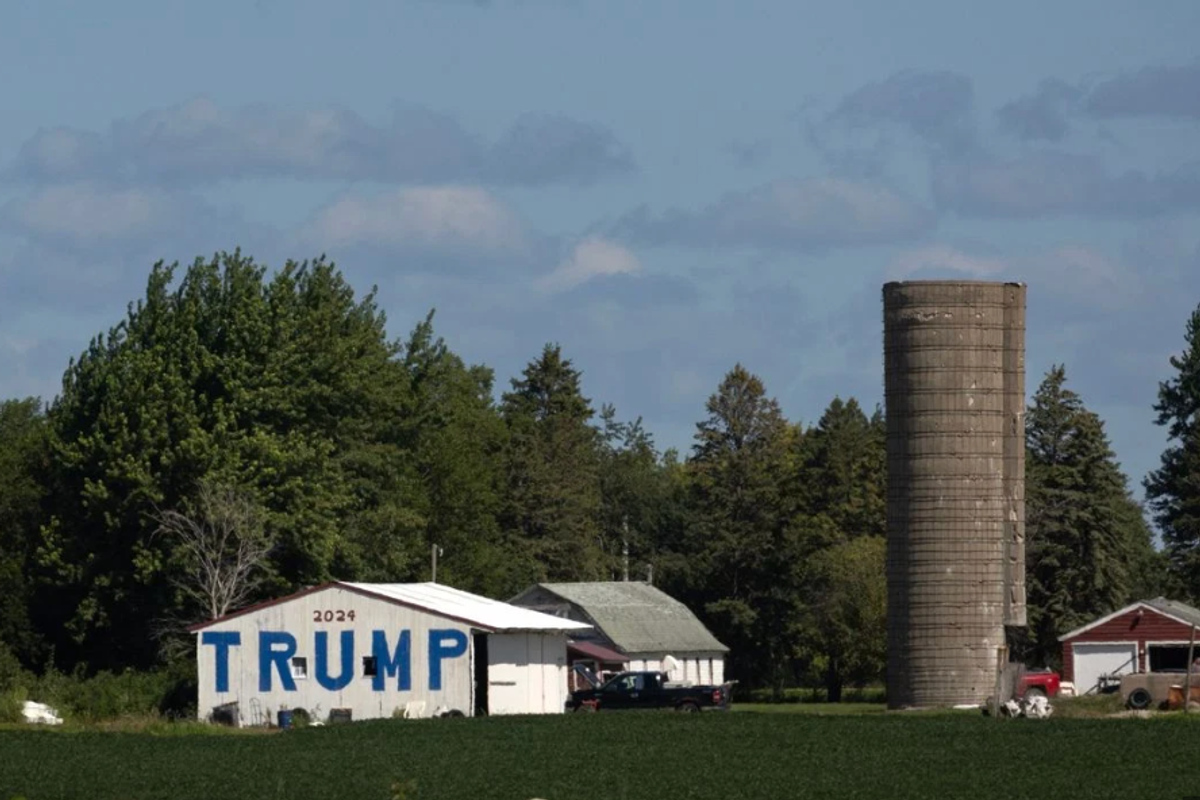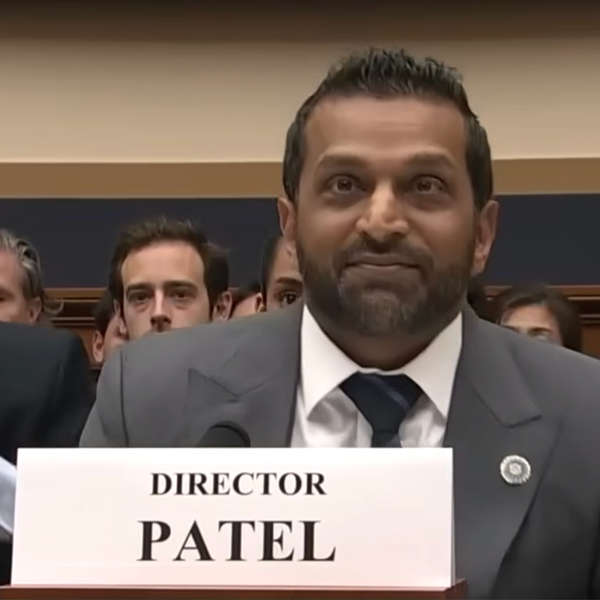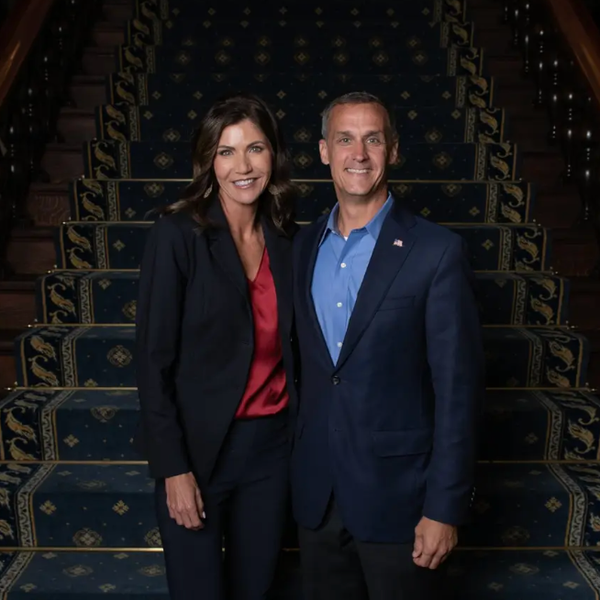
Everyone is talking, understandably, about Iran. But the rest of Donald Trump’s policy agenda continues to goose-step on. Radical changes in social spending, immigration policy, and tariffs — changes that will hurt tens of millions of Americans — are either about to start or are already happening.
And one point I haven’t seen emphasized much is that while the human damage from these policies will be very widespread, it will be especially severe in rural areas and small towns — the very areas that overwhelmingly supported Trump in 2024.
The first thing you need to understand is that while rural Americans like to think of themselves as self-reliant, the fact is that poorer, more rural states are in effect heavily subsidized by richer states like Massachusetts and New Jersey.
This reality makes it inevitable that the standard conservative fiscal agenda — tax cuts for the rich, benefit cuts for the poor and middle class — hurts the heartland more than it hurts major metropolitan areas. But MAGA’s Reverse Robin Hoodism goes far beyond the standard conservative agenda, in ways that will be especially devastating to rural areas and small towns.
First, consider the shape of the One Big Beautiful Bill Act. (I think it’s important to call it by its ludicrous official name, as a reminder of the extent to which Republican members of Congress have become North Korea-style sycophants.) The final details haven’t been settled, and there’s still an outside chance that the whole thing falls apart. But it’s almost certain that there will be savage cuts to Medicaid and food stamps, programs that disproportionately help Trump-supporting rural areas.
Let’s talk about Medicaid first, a program that is far more important than most affluent Americans tend to realize. Almost 40 percent of children are covered by Medicaid, with some of the highest percentages in deep red states like Alabama and Mississippi. Medicaid pays for 42 percent of births in America. And more to my point, Medicaid covers a higher fraction of the population in rural than in urban counties. So deep cuts in the program will hit Trump-supporting regions especially hard.
The same is true for OBBB’s deep cuts to food stamps.
The damage will be magnified by Republican plans to cut Medicaid spending by adding work requirements. We know from repeated experience that such requirements don’t actually lead to significant increases in employment. What they do instead is block access to health care by creating bureaucratic hurdles for beneficiaries — hurdles that rural Americans, often burdened by limited formal education and inadequate internet access, find especially hard to overcome.
Furthermore, rural America has long had a problem of hospital closures: It’s hard for hospitals to stay in business given both low population density and limited ability of patients to pay. The Beautiful Bill will accelerate this trend, so that even rural residents who can afford care may very well find it geographically out of reach.
In addition, federal health spending, both Medicaid and Medicare, is disproportionately important in supporting rural and left-behind local economies. For example, the economy of West Virginia no longer rests on coal mining, which employs very few people these days. It would be more accurate to say that the foundation of West Virginia’s economy is federal spending on Medicare and Medicaid. That is, in deep red West Virginia, Medicare and Medicaid are directly and indirectly a major source of income.
Then there are Trump’s immigration policies. American agriculture relies heavily on hired workers — and around two thirds of these hired workers are immigrants. A majority of these foreign-born workers are undocumented:
Moreover, even if you a legal resident or even a native-born citizen, do you really feel safe if ICE thinks you look like an illegal immigrant? Not surprisingly, there are reports of widespread ICE raids on farms and of workers refusing to work out of fear of arrest and deportation.
Can immigrant workers be replaced with native-born workers, or even with legal immigrants? No. All indications are that few native-born Americans would be willing to do these jobs unless they were paid much higher wages. Under the Biden administration the U.S. introduced a program offering grants to farmers who bring in foreign workers legally — but the Trump administration has frozen funding for that program, including money that had already been promised, leaving farmers on the hook for many thousands of dollars.
So Trump’s anti-immigrant policies are inflicting will be a major blow to U.S. agriculture — to family farms that employ immigrant workers and are being left high and dry, to food processing and local retail. Like Medicaid, immigrant farm labor directly and indirectly supports many rural jobs for the native-born.
Finally, there’s the trade war. In case you haven’t noticed, Trump hasn’t yet delivered a single one of the 90 trade deals he promised to negotiate by July 8. China has already retaliated, and others will follow. And U.S. agriculture is highly dependent on exports:
Nor can you argue that farmers will make up for lost exports by producing goods we currently import, since we mainly import the farm products we can’t produce here. That’s a point that seems to be lost on Trump’s Commerce Secretary. Recently Howard Lutnick clashed with Rep. Madeline Dean over the impact of tariffs on prices of food items including bananas. “If you build in America … there will be no tariff,” Lutnick argued. “We cannot build bananas in America,” she replied, somehow managing to avoid saying “Duh.”
While many are now realizing that Trump’s policies will produce social and economic disaster, relatively few understand that the disaster will fall disproportionately on rural Trump voters. But of course it will. For the purveyor of Trump bibles and Trump meme coins, screwing the little guy has always been his personal style of grift. It remains to be seen if rural Trump supporters will awaken from their naivete.
Paul Krugman is a Nobel Prize-winning economist and former professor at MIT and Princeton who now teaches at the City University of New York's Graduate Center. From 2000 to 2024, he wrote a column for The New York Times. Please consider subscribing to his daily Substack.
Reprinted with permission from Substack.
- Maybe America Should Let MAGA Fanatics Secede-- And Fail ›
- Boss Trump, America's Biggest Crybaby, And His Whining Imitators ›
- State Of The Big Lie: Why Trump Repeated Musk's Myth About Social Security ›
- Trump And Melania Booed 'Mercilessly' At Kennedy Center Opening Night ›
- Poll: With More Than Half the Public Saying They or a Family ... ›
- In Rural N.C., Trump Supporters Eagerly Await A Different Kind Of ... ›
- Why Trump made rural Americans turn their backs on Democrats ... ›
- Trump Is About to Betray His Rural Supporters - The Atlantic ›
- 10 Ways President Trump's Agenda Will Harm His Supporters in ... ›








